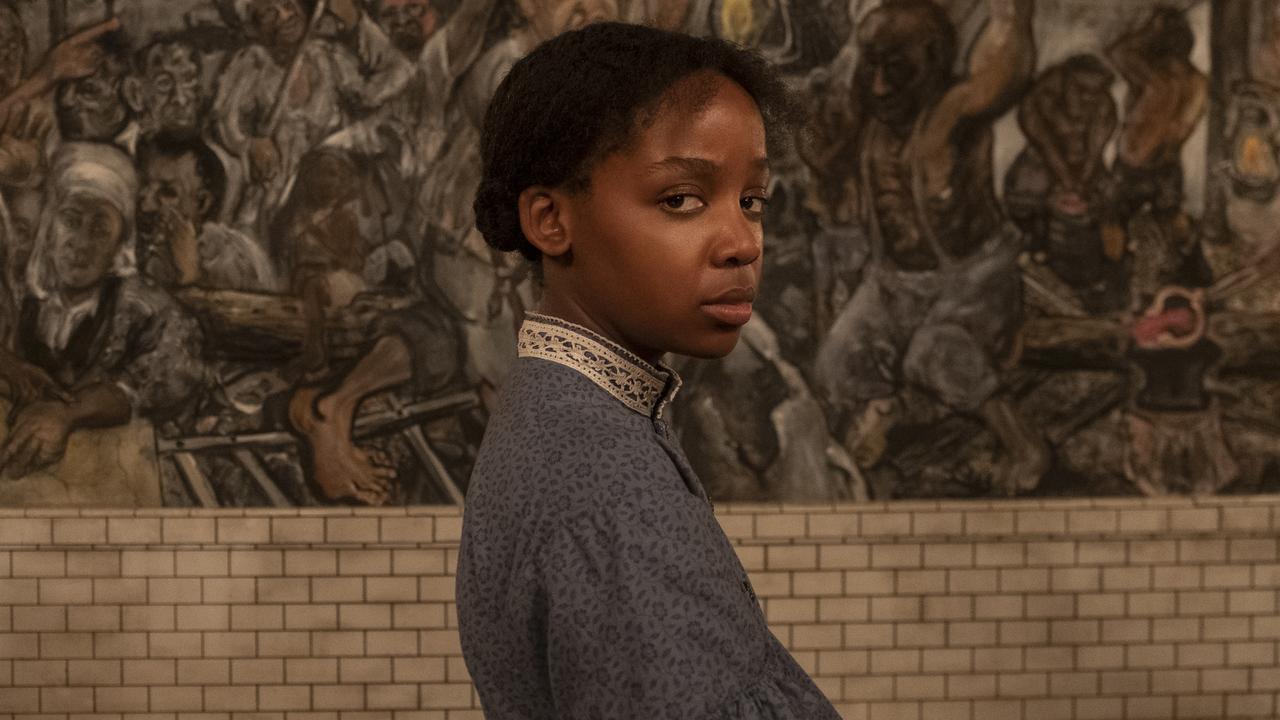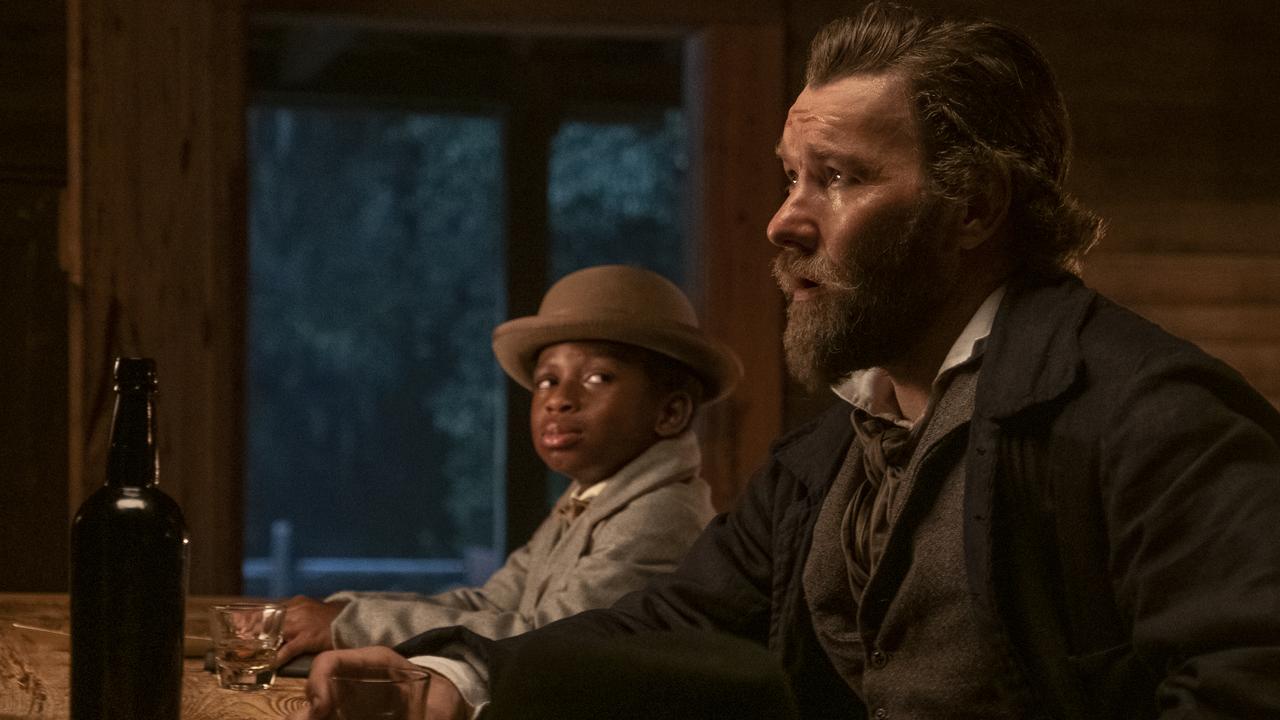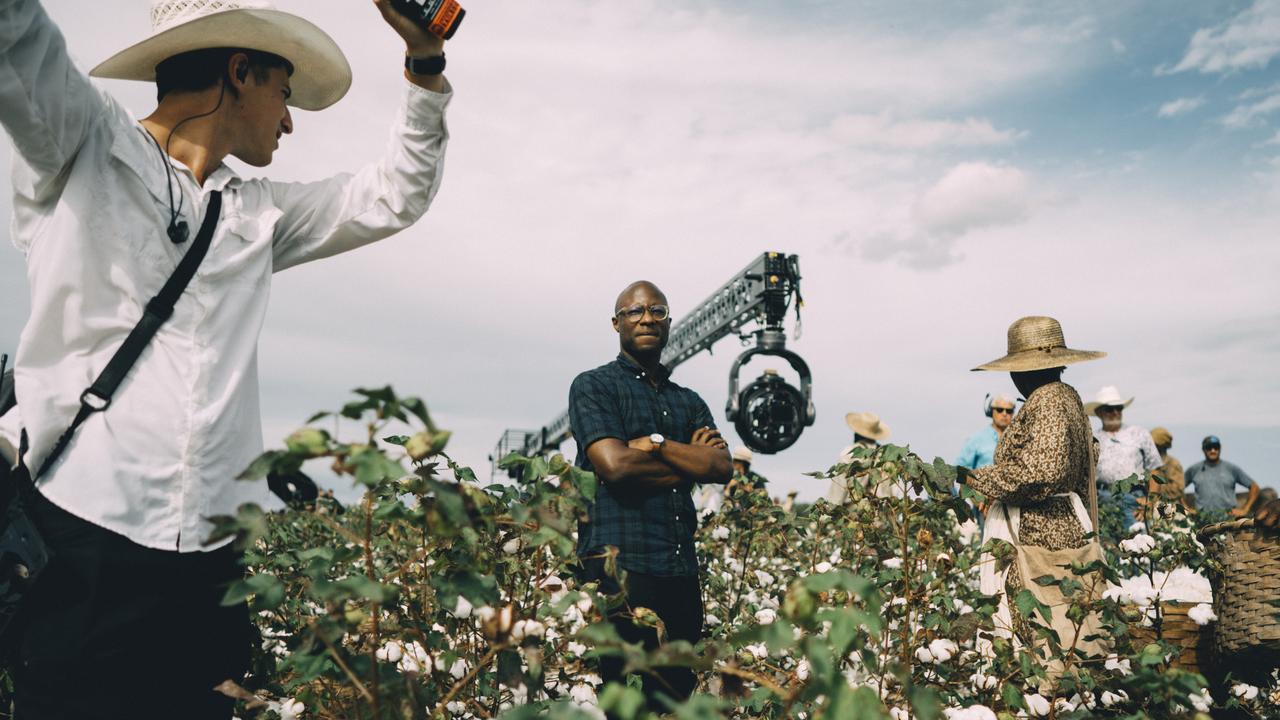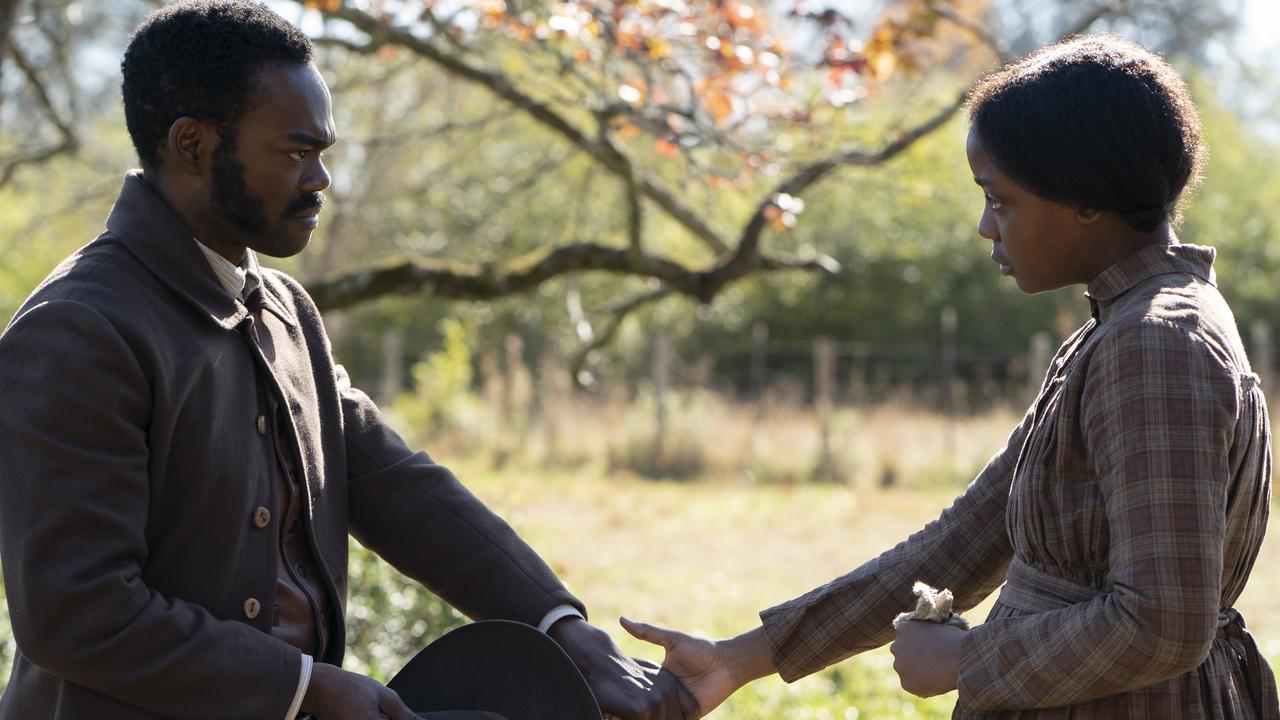Filmmaker Barry Jenkins on the brutal violence in Underground Railroad
A new streaming series features a scene of such extreme violence, its filmmaker had to grapple with whether it was ethical to even show it.
Oscar-winning filmmaker Barry Jenkins always wonders about how audiences will take to his work – even though he’s the man behind one of the most lauded films of the past decade, Moonlight.
But with his latest project, streaming miniseries Underground Railroad, he’s particularly interested in the response given his choice to depict incidents of extreme, brutal violence.
“I always [think about the public reaction], but especially this one,” Jenkins tells news.com.au. “You wonder how it’s going to be received and with [Underground Railroad], because of the subject matter, I’ve very curious to see how it’s going to be received, across many different elements.”
Jenkins is acknowledging that the subject of Underground Railroad, adapted from Colson Whitehead’s Pulitzer Prize-winning novel, is a difficult one for many, perhaps even triggering.
Set in the years before the US Civil War, the fictionalised story transforms the historical network of secret routes and safe houses which transported escaped enslaved peoples out of the American south into a literal locomotive train.
It follows Cora (Thuso Mbedu), a young woman from a Georgian plantation who makes a bolt and rides the railway north. She stops in many states, each coming to stand for a different experience of black American history, while a slave catcher named Ridgeway (Joel Edgerton) gives chase.

RELATED: Moonlight is a quietly beautiful film
Visually breathtaking and beautifully written, Underground Railroad is primed to grab headlines for its craft, but also for its on-screen violence, which is brutally truthful to the point where there’s a scene in which a recaptured runaway is tortured and burnt to death, skin stripping off with each crack of the whip.
The portrayal of raw debasement of a human body, especially a black one, is difficult to stomach, but the extreme depiction is something Jenkins thought long and hard about, something he really had to grapple with – how far does he push it, is it ethical to do so, is it unethical to not do it?
“I am satisfied with where it landed,” he explains. “I felt like I wanted to be very forthright and portray what happened. Because in my research there were many worse things than anything we depict. And those things were still happening into the early parts of the 20th century.
“I also think all these stories, these cinematic treatments of these stories, they’re kind of in conversation with one another – from Roots to Gordon Parks’ adaptation of Solomon Northrup’s memoir [12 Years a Slave] to Steve McQueen’s adaptation of that same memoir.
“These images are building on each other, and I feel like to do anything less than the imagery that came before would be a disservice to that conversation.
“I had to always be aware of what is the moral and ethical line of what I portray.”

RELATED: Joel Edgerton and Timothee Chalamet on making The King
The aforementioned scene of the man tortured to death for running away, the Big Anthony scene, comes in the first episode. It’s probably the most confronting visuals of Jenkins’ series, which only spends two episodes on a slave plantation, and if a viewer can get past that, it’s not smooth sailing but the “worst” is over.
“I knew I was going to show it,” Jenkins says of the sequence. “Because it’s in the book and in order for a character like Cora, who has in some ways given up on herself, given up on the world, it takes an extreme act to motivate her to finally accept Caesar’s offer to leave.
“I wanted to do two things. One, whenever we were showing acute trauma, I wanted to show how that trauma is affecting those who are witnessing it. So, every time, especially in episode one, when there is an act of brutality, we pan off the act and we find the people who are being forced to watch.”
The other thing Jenkins wanted to do, and which he says he wasn’t completely successful at achieving, is to go into the point-of-view of Big Anthony and show his consciousness almost floating away, insulating him from the unbearable violence inflicted on him.

RELATED: What to watch on streaming in May
“I couldn’t articulate what it was I was after and I couldn’t explain why I wanted it, but I felt it, the way trauma can almost sort of dissociate us from our own bodies. By having that act as a form of release.
“It’s one of the few things in the show that I have no problem being honest to say that I couldn’t pull off. I couldn’t figure out how to have that happen and not make it feel like levitation.”
Like many filmmakers, even after the final edit is done, Jenkins is still revising his work in his head – “Ask any filmmaker, I mean, Moonlight won Best Picture and there’s about 8000 things I wish I could keep working on with that film, and this one is no different.”
The day they filmed that sequence was an emotional one. Jenkins says he had to walk off set to gather himself. He reveals Edgerton, whom he now considers a friend, went to some dark places during the 116-day shoot.
The filming took place in Georgia, a state where the blood of so many black Americans’ ancestors layer the soil. The horror of American slavery is an indelible part of the nation’s history, but many, including Jenkins, argues it’s a history the US still hasn’t reckoned with.
“We don’t do a very good job of teaching our history to our own citizens. If we did, there would be no need for art like this,” he says.

“Art has always stepped in and filled those gaps. Right now, the medium that I work in is the medium that is most equally and readily digestible for the audience. If this was a century ago, it would be literature.
“I live in a country where for the last four years, I’ve heard the phrase ‘Make America Great Again’ and the fact that 70 million people would endorse that rhetoric shows me that there are 70 million people who either don’t know or are wilfully not acknowledging the actual history of what America has always been and certainly once was.
“So, it is incumbent upon artists, if they so feel, not every artist has to do this, but in making work that speaks the truth. And hopefully that will incite people to seek it out.”
Jenkins is aware that his series will likely be framed as a show about slavery, but for him, it’s something else as well, it’s about parenting.
“It’s even more pointedly a show about a young woman who feels she was abandoned by her mother,” he explains. “She goes on this journey to learn what it takes, that sort of parental and motherly sacrifice that so many women who have children at some point have to make.
“What it was like for her mother, Mabel, to have made this decision. It’s a decision she can never know but in living the journey of the show, she goes through it herself.”

In researching and preparing for Underground Railroad, Jenkins had to contend with his idea of parental sacrifice on an individual level but, more significantly on a collective scale – and he a little prompt from a controversial claim by an even more controversial rapper.
“Kanye West went to TMZ and said, ‘slavery was a choice’ and it really angered me,” he says. “But then I tried to really understand what he was trying to say. Or I tried to make what he said makes sense.
“And in my research, I was like, ‘well, what choices did people have?’. They could’ve taken up arms in revolt, but the system of American slavery was very militaristic – everyone would’ve died. And in dying, the children would’ve been left behind because there were children everywhere, there had to be to feed the system.
“So, these people, if they chose anything, it was to endure to protect the children. It was one of the greatest collective sacrifices and one of the greatest acts of collective parenting the world has ever seen.
“If anybody watches the show and they take away one thing away from the final image, it’s that my ancestors were just tremendous parents.”
Underground Railroad premieres on Amazon Prime Video on Friday, May 14
Share your movies and TV obsessions | @wenleima




